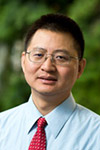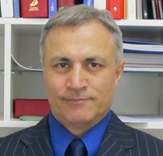Sessions
Immune Cell Reprogramming & Gene-Edited Immunotherapies
Advances in immune cell engineering are reshaping the therapeutic landscape by enabling precise manipulation of T cells, NK cells and dendritic cells to improve safety, specificity and long-term efficacy. Gene-editing platforms such as CRISPR, base editors and epigenome modulators now allow clinicians to reprogram immune cells to better recognize tumor antigens, resist immunosuppressive microenvironments and enhance persistence in circulation. These engineered cells are being tailored with synthetic receptors, armored gene circuits and controlled cytokine outputs to reduce toxicities and prevent immune exhaustion. Research continues to expand beyond CAR-T cells to include CAR-NK, CAR-macrophages, TCR-T cells and hybrid synthetic immune constructs capable of coordinated multi-target responses. Applications extend from oncology to autoimmunity, infectious diseases and transplant rejection. The integration of AI-driven antigen prediction, high-throughput functional screening and in vivo genome delivery technologies is accelerating the development of customizable immune products. This approach aims to build a new generation of intelligent, adaptable therapeutics capable of precise pathogen clearance, durable anti-tumor immunity and restoration of immunological balance across diverse patient populations.
Next-Generation Vaccines & Antigen Engineering
The development of next-generation vaccines focuses on designing ultra-precise antigen structures that stimulate strong immunity while reducing adverse reactions. Structural vaccinology, reverse antigen design and computational prediction tools now guide the crafting of optimized epitopes that can overcome immune escape and generate broader cross-protection. mRNA, DNA, viral vectors, synthetic peptides and nanoparticle-based vaccines provide flexible delivery platforms capable of rapid manufacturing and scalable adaptation to evolving pathogens. Multi-valent antigen assemblies, self-amplifying RNA and thermostable vaccine technologies are enabling effective responses in both developed and resource-limited settings. Researchers are integrating adjuvants that modulate innate responses, enhance memory formation and tailor immune profiles for specific populations, including the elderly and immunocompromised. Applications span infectious diseases, cancer prevention, autoimmune modulation and allergy desensitization. The emergence of universal vaccines for influenza, coronavirus families and multi-pathogen threats reflects the field’s shift toward proactive global preparedness. These innovations mark a new era of customizable and durable vaccine solutions built for a rapidly changing health landscape.
Cytokine Signaling Networks & Immune Modulation
Cytokine signaling is fundamental to orchestrating immune responses, and new discoveries are illuminating the complex networks that govern inflammation, tolerance and tissue repair. Advanced profiling technologies such as single-cell sequencing, proteomics and spatial transcriptomics provide unprecedented insights into the interactions between cytokines, receptors and downstream pathways. Precision immunomodulation targets these networks to rebalance dysregulated responses in autoimmune diseases, chronic inflammation and cancer. Engineered cytokines, receptor agonists, antagonists and pathway-specific inhibitors enable selective fine-tuning of immune activity while minimizing systemic toxicity. Synthetic biology is contributing modular cytokine circuits designed for controlled release, targeted activation and microenvironment-specific function. Applications extend to enhancing vaccine efficacy, prolonging transplant survival and improving immunotherapy outcomes by modifying cytokine gradients in tumor microenvironments. Understanding feedback loops, cross-talk and metabolic influences on cytokine biology is central to developing next-generation therapies. This session highlights how network-based cytokine engineering is transforming modern immune intervention strategies.
Adaptive Immunity, Memory Formation & T-Cell Engineering
Research in adaptive immunity is advancing rapidly, revealing how T cells and B cells generate durable memory responses and adapt to new immunological challenges. Memory T-cell formation is now understood to rely on metabolic rewiring, epigenetic programming and the spatial distribution of immune niches that support long-term persistence. Engineering these cells through gene editing, synthetic receptor design and checkpoint modulation enhances their durability and ability to clear tumors or chronic infections. Memory B-cell engineering and monoclonal antibody optimization are also driving breakthroughs in vaccine durability and passive immunotherapies. Scientists are designing T cells with improved homing properties, resistance to exhaustion and controlled activation signaling to expand clinical applications while reducing toxicity. These developments support personalized immunotherapies that respond dynamically to disease evolution. The integration of computational modeling, systems immunology and high-throughput immune profiling is accelerating the identification of memory-associated biomarkers and therapeutic targets, helping shape the future of highly adaptable, long-lasting immune interventions.
Innate Immune Sensors, Pattern Recognition & Host Defense
Innate immunity provides the body’s first line of defense through pattern recognition receptors (PRRs) such as TLRs, NOD-like receptors, RIG-I-like receptors and cGAS-STING pathways. These sensors detect microbial signatures and cellular distress to initiate rapid immune responses. Advances in molecular immunology reveal how dysregulation of these pathways contributes to autoimmunity, chronic inflammation and susceptibility to infections. Therapeutic strategies now aim to modulate innate sensors to fine-tune immunity, enhance pathogen clearance or suppress harmful inflammation. Synthetic ligands, small-molecule regulators and targeted nanoparticles are being developed to activate or inhibit specific pathways with precision. Understanding cross-talk between innate and adaptive immunity is guiding vaccine adjuvant design and antiviral drug development. Researchers are also studying the role of trained immunity, where innate cells acquire memory-like properties that enhance future responses. This evolving knowledge is enabling interventions that harness the strengths of innate defense while ensuring controlled and balanced immune activation.
Autoimmunity Mechanisms & Precision Immunoregulation
Autoimmune diseases arise from complex interactions between genetic predisposition, environmental triggers and immune dysregulation. Modern immunology is uncovering the mechanistic roots of autoimmunity through detailed mapping of autoreactive T cells, B cells, cytokine networks and antigen-presenting cell dysfunction. Precision immunoregulation focuses on restoring immune tolerance without broad immunosuppression. Novel approaches include antigen-specific therapies, tolerogenic dendritic cell models, engineered regulatory T cells, B-cell depletion refinement and checkpoint-based modulation. Advances in genomics, proteomics and immune repertoire sequencing are enabling personalized treatment strategies based on individual molecular signatures. Therapies targeting epigenetic regulation, metabolic pathways and microbial influences are expanding options for refractory conditions such as lupus, rheumatoid arthritis and multiple sclerosis. This field is moving toward highly selective interventions that correct immune malfunction while preserving protective immunity, advancing therapies that are safer, more effective and tailored to each patient's immunological profile.
Immunometabolism & Cellular Energy Dynamics
Immunometabolism explores how metabolic pathways govern immune cell activation, differentiation and function. T cells, macrophages, dendritic cells and NK cells rely on distinct metabolic programs that shape their ability to fight infection, eliminate tumors or maintain tolerance. Disruptions in metabolic signaling contribute to inflammatory diseases, cancer progression and immunotherapy resistance. Cutting-edge research focuses on manipulating glycolysis, oxidative phosphorylation, amino acid metabolism and lipid pathways to modulate immune responses with precision. Metabolic inhibitors, nutrient-sensing pathway modulators and engineered enzymes are emerging as powerful tools for immune control. Systems biology and metabolomics are helping map the metabolic states associated with diverse immune conditions. Therapies targeting metabolic checkpoints offer new opportunities to enhance CAR-T cell persistence, reduce autoimmune flares and influence macrophage polarization. Immunometabolism has become a critical frontier that links cellular energetics with immune outcomes, offering transformative therapeutic potential.
Tumor Immunology & Personalized Cancer Immunotherapies
Tumor immunology is uncovering how cancer cells evade immune detection and how targeted immunotherapies can restore anti-tumor responses. Insights into tumor microenvironment biology, immune checkpoints, neoantigen presentation and cellular exhaustion are shaping the development of next-generation therapies. Personalized cancer immunotherapy integrates genomic sequencing, neoantigen prediction and tailored immune engineering to create patient-specific interventions. CAR-T cells, TCR-modified lymphocytes, tumor-infiltrating lymphocyte expansion, checkpoint inhibitors and oncolytic viruses represent core therapeutic tools. Strategies now focus on overcoming resistance, enhancing infiltration and reprogramming immunosuppressive microenvironments to support long-term remission. Combination therapies involving vaccines, cytokine engineering and metabolic modulation are showing promising results. Computational modeling and AI-driven immunotherapy design are accelerating individualized treatment planning. This evolving field continues to lead innovation in immune-based oncology.
Mucosal Immunity & Barrier Protection Mechanisms
Mucosal surfaces form the body’s largest interface with the external environment, hosting specialized immune systems that protect against pathogens while maintaining tolerance to harmless antigens. Research highlights the critical role of epithelial integrity, innate lymphoid cells, mucosal antibodies, tissue-resident T cells and microbiota-derived signals in shaping immune outcomes. Dysregulation can lead to chronic inflammation, allergies or susceptibility to infections. Therapeutic advancements aim to enhance mucosal defenses using targeted vaccines, engineered probiotics, barrier-strengthening peptides and immune-modulating nanoparticles. Understanding regional immunity—in the gut, lungs, skin and reproductive tract—provides insights into disease-specific interventions. Mucosal immune research is central to developing vaccines for respiratory and gastrointestinal pathogens, treatments for inflammatory bowel diseases and strategies to modulate systemic immunity through localized interventions.
Allergy, Hypersensitivity & Immune Tolerance Strategies
Allergic diseases are driven by inappropriate immune reactions to harmless substances, mediated through IgE responses, mast cell activation and dysregulated T-cell polarization. Innovative research focuses on the molecular pathways underlying hypersensitivity and how immune tolerance can be reestablished. Approaches include allergen-specific immunotherapy, recombinant allergen design, Treg-inducing vaccines, microbiome modulation and targeted blockade of inflammatory mediators such as IL-4, IL-5 and IL-13. Advances in diagnostic biomarkers and precision phenotyping enable more individualized treatment strategies. Understanding genetic predisposition, environmental exposures and epithelial barrier defects helps refine preventive measures. The future of allergy treatment lies in targeted and durable immune tolerance induction, moving beyond symptom control toward long-term correction of immune dysfunction.
Microbiome–Immune Axis & Host Interaction Pathways
The microbiome profoundly shapes immune system development, maturation and response to diseases. Disruptions in microbial composition influence inflammation, infection susceptibility, autoimmunity and metabolic health. Modern techniques such as multi-omics sequencing, metabolomics and microbial culturomics are revealing complex interactions between microbial metabolites, immune receptors and host signaling pathways. Therapeutic innovations include engineered probiotics, fecal microbiota transplantation refinements, postbiotic therapies and microbiome-targeted immunomodulators. Understanding these interactions supports advances in cancer immunotherapy responsiveness, allergy prevention and chronic inflammatory disease management. The microbiome–immune axis represents a transformative field for developing personalized, biologically grounded therapies.
Nanotechnology-Enabled Immune Delivery Systems
Nanotechnology is revolutionizing immunology by enabling precise delivery of antigens, drugs, nucleic acids and adjuvants directly to targeted immune cells and tissues. Nanocarriers such as liposomes, polymeric nanoparticles, dendrimers and biomimetic vesicles—enhance therapeutic stability, controlled release and biodistribution. These systems improve vaccine potency, support tumor-targeted immunotherapy and reduce systemic toxicity. Researchers are designing smart particles that respond to microenvironmental cues, ensuring localized action in sites of infection or tumors. Nanotechnology supports gene editing delivery, cytokine modulation and lymphoid organ targeting with unprecedented specificity. As safety profiles improve, nano-enabled immune therapies are expected to become central components of future biomedical interventions.
Viral Immunology, Emerging Pathogens & Host Response
Viral immunology examines how host defenses recognize and eliminate viral threats while maintaining immune balance. Emerging pathogens require rapid understanding of viral life cycles, immune evasion strategies and protective immune correlates. Breakthrough technologies in antigen mapping, T-cell profiling, neutralizing antibody characterization and in vivo infection modeling support new antiviral designs. Vaccines, monoclonal antibodies, antiviral peptides and immune-modulating agents are being developed in response to global threats. The field also explores long-term complications such as viral persistence, post-viral syndromes and immune dysregulation. Strengthening global surveillance and integrating AI for outbreak modeling are vital strategies for future pandemic readiness.
Inflammation Biology & Chronic Immune Disorders
Chronic inflammation is a driver of numerous diseases including arthritis, cardiovascular disorders, neurodegeneration and metabolic syndromes. Research continues to identify the cellular and molecular triggers that sustain inflammatory cycles, including cytokine cascades, dysregulated innate sensors, unresolved tissue damage and metabolic dysfunction. Innovative therapies target inflammatory mediators, intracellular signaling pathways and specific immune cell subsets to restore balance without broad suppression. Anti-inflammatory biologics, small-molecule inhibitors, epigenetic modulators and metabolic regulators are expanding treatment possibilities. Understanding the interplay between chronic inflammation and aging, microbiome composition and comorbidities enables more effective long-term management strategies and precision-based interventions.
Computational Immunology, AI Modeling & Immune System Simulation
Computational immunology integrates artificial intelligence, machine learning and predictive modeling to enhance understanding of immune dynamics. By analyzing large-scale genomic, proteomic and cellular datasets, AI models identify disease biomarkers, predict treatment responses and simulate immune interactions at multiple scales. Digital immune twins, agent-based simulations and structural modeling help design vaccines, optimize immunotherapy strategies and evaluate drug–immune interactions before clinical testing. These tools accelerate discovery timelines and reduce development costs. Computational approaches are also improving neoantigen prediction, immune repertoire analysis and personalized therapy design. The fusion of immunology and AI is creating a powerful platform for next-generation precision interventions.
Market Analysis
The global immunology market has witnessed significant growth over the past decade, driven by increasing prevalence of autoimmune diseases, infectious diseases, and cancer, as well as the rapid advancement of biotechnologies and precision medicine. Immunology, as a field, encompasses the study and manipulation of the immune system for both diagnostic and therapeutic purposes, making it critical for the development of vaccines, biologics, and immunotherapies. According to recent analyses, the global immunology market is projected to grow at a compound annual growth rate (CAGR) of approximately 9–11% over the next five years, reflecting strong demand for novel therapies and diagnostic solutions. Key drivers of this growth include the rising incidence of autoimmune disorders such as rheumatoid arthritis, lupus, and multiple sclerosis, which are fueling demand for targeted immunomodulatory drugs. Cancer immunotherapies, including checkpoint inhibitors, CAR-T cell therapies, and personalized vaccines, are also major contributors, transforming oncology treatment paradigms and creating significant revenue streams. Infectious disease outbreaks, exemplified by the COVID-19 pandemic, have further highlighted the critical need for rapid vaccine development and advanced immune response monitoring technologies, accelerating investments in immunology research. Technological innovations, such as immune cell reprogramming, CRISPR-based gene editing, AI-driven immunological modeling, and nanotechnology-enabled delivery systems, are redefining therapeutic and diagnostic possibilities. Additionally, advancements in computational immunology, high-throughput screening, and multi-omics integration allow for precise mapping of immune pathways and predictive modeling of patient responses, facilitating personalized medicine approaches.
The market is also shaped by increasing government funding, favorable regulatory support for orphan drugs and advanced biologics, and a strong pipeline of clinical trials across multiple indications. Key regions driving market growth include North America, Europe, and Asia-Pacific, where substantial healthcare infrastructure and investment in research and development support expansion. Emerging economies are also witnessing growth due to improved access to immunological therapies and increasing awareness of chronic and infectious diseases. Challenges remain, including high costs of novel immunotherapies, complex manufacturing requirements, and regulatory hurdles for advanced biologics. Despite these obstacles, strategic collaborations, mergers, and acquisitions among pharmaceutical and biotechnology companies are facilitating innovation and commercialization. Overall, the immunology market represents a dynamic and rapidly evolving sector with tremendous potential for scientific advancement and economic growth. Continued investment in research, technology integration, and personalized immune-based therapeutics will likely drive sustained expansion, making immunology a cornerstone of modern healthcare and therapeutic innovation globally.
Past Conference Report
European Immunology 2025
It's our privilege to invite all the Researchers, Scientists and Experts on behalf of committee members to be the part of the prestigious 19th International conference on European Immunology schedule on November 03-04, 2025 at Rome, Italy . We aim to unify all the people indulged in this vast field and share the knowledge, explore and look forward to the new way by integrating new thoughts and customizing the limits of future technology.
European Immunology 2025 offers an attention to explore, grip and meet with prominent speakers of the field, including both broad and specific subjects. The European Immunology 2025 will be surrounding around the theme “Exploring the dynamic interplay of pathogens and the immune system”. The European Immunology 2025 is designed with the Keynote sessions, Session lectures and Poster presentations, Young Researchers, Panel Discussions and the B2B meetings with world-renowned speakers from the stream of immunology. It provides the best platform for the researchers all over the globe to introduce themselves to the innovative world with their unique research.
WHY TO ATTEND?
European Immunology 2025 is aimed the World's leading Medical Conference. The two days event on Immunology & Immunogenetics will host 60+ Scientific and technical sessions and sub-sessions on leading and latest research transformation related to the field, covering the globe. European Immunology 2025 will comprise of 50 major sessions designed to offer comprehensive sessions that discourse current topics in the field.
Past Reports Gallery








